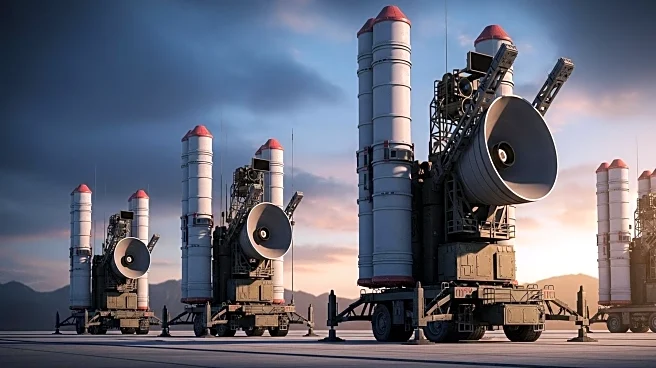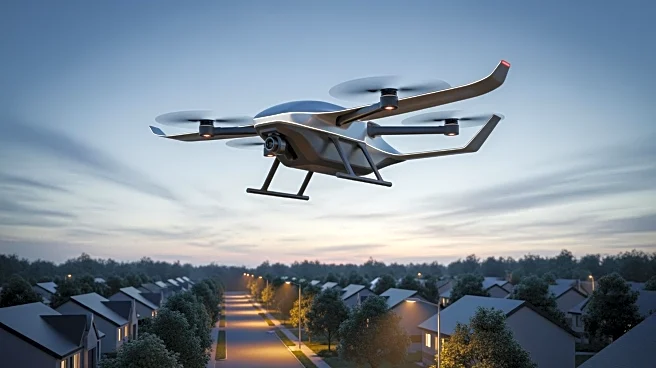What's Happening?
Taiwanese President Lai Ching-te has unveiled a new multilayered air defense network called the 'T-Dome' to bolster the island's defense capabilities against increasing military pressure from China. The announcement was made during Taiwan's National Day celebrations, highlighting the government's commitment to enhancing its defense systems. The T-Dome will incorporate advanced technologies, including artificial intelligence, to create a smart defense combat system aimed at strengthening Taiwan's asymmetric warfare strategy. This initiative comes in response to China's intensified military activities around Taiwan, including large-scale exercises and frequent incursions across the Taiwan Strait.
Why It's Important?
The development of the T-Dome is a significant step in Taiwan's efforts to safeguard its sovereignty amid growing threats from China, which claims Taiwan as its territory. The enhanced defense capabilities are crucial for maintaining regional stability and deterring potential aggression. Taiwan's strategic focus on asymmetric warfare reflects its need to defend against a larger adversary with precision and mobility. The initiative also signals Taiwan's intent to increase its defense spending, which is projected to rise to 5% of GDP by 2030. This move is likely to impact U.S.-Taiwan relations, as the U.S. remains Taiwan's top arms supplier.
What's Next?
The timeline for the full operational capability of the T-Dome remains unclear. However, Taiwan's defense ministry has released a report indicating a significant increase in Chinese military flights in the Taiwan Strait, underscoring the urgency of enhancing defense measures. The announcement coincides with ongoing trade negotiations with the Trump administration, as Taiwan seeks to balance its economic ties with the U.S. and its security needs. The development of the T-Dome may also influence Taiwan's defense policy and its approach to international relations, particularly with China.
Beyond the Headlines
The introduction of the T-Dome highlights the broader geopolitical tensions in the region, as Taiwan navigates its complex relationship with China. The focus on asymmetric warfare and advanced technologies reflects Taiwan's strategic adaptation to modern military challenges. The initiative may also prompt discussions on the ethical implications of using artificial intelligence in defense systems, as well as the long-term impact on regional security dynamics.











